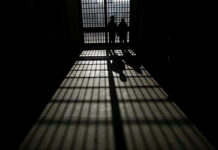KL NEWS NETWORK
SRINAGAR

The Prime Minister’s Special Scholarship Scheme (PMSSS) for students from the troubled state of Jammu and Kashmir (J-K), which aimed at offering them a “special chance” to study in mainland India now has virtually no takers. Ever since its launch in 2011, the Rs 1200 crore scheme has run into rough weather. Students have been counselled and sent to colleges which did not offer courses of their choice; many youngsters have been turned away from colleges of their choice which had no information about the scheme. In a few bizarre instances, the scholarship winners were allocated colleges which did not exist.
Out of 3,742 J-K students who were allotted various undergraduate colleges across India in the academic year 2015-16 under PMSSS, so far only 1200 (about 30%) students have taken up the offer. Also, as one semester of academic year is already over, there is hardly any likelihood of an increase in this number.
Data revealed by the All India Council for Technical Education (AICTE), which implements the scheme, shows that out of the 3,742 students, 1,629 were allotted provisional admission letters for engineering and technology courses and 2,113 for general courses. Out of these 1,629, too, only 900 students sought admission to engineering colleges while the rest decided to stay away.
As far as general courses are concerned, the response has been extremely poor as only 250 students took admission out of the 2,113 who were counselled and issued admission letters to prestigious colleges of the country.
PMSSS was approved in August 2011 by the Union Cabinet Committee on Economic Affairs and offered 5,000 fresh scholarships every year over next five years to encourage students from J-K to pursue higher studies outside J&K. The five-year period ends with the academic session 2015-16.
While AICTE has been executing the whole scheme, an Inter-Ministerial Committee (IMC) – chaired by secretary, department of higher education, Ministry of Human Resource and Development, and senior officer bearers from other ministries – had been set up to monitor its implementation.
Response of the students to PMSSS was very poor too in the academic year 2014-15. Out of the 2,102 students given provisional admission letters for technical and humanities colleges in the country, only 700 (about 30%) could take up the offers.
To avoid embarrassment and push up the number of admissions, the IMC had to relax the two-student-per-college-norm it had imposed in the beginning of the session in 2014, and approved scholarships for 943 more students just a few weeks ago in 2016. Colleges which violated AICTE’s norm and admitted more than 100 students were allowed to do so.
The admission norm of two-student-per-college was introduced in 2014-15 when in two previous academic sessions, 2012-13 and 2013-14, private universities eager to get their hands on the government funds for PMSSS admitted hundreds of students, reportedly with the help of NGOs in J-K. Also, when the academic session of 2014-15 began, it was decided that only UGC-approved government colleges and AICTE-approved technical colleges would admit students through counselling conducted by AICTE in J-K.
Now AICTE officials attribute reasons for the low turnout of the two academic sessions 2014-15 and 2015-16 to the restrictions imposed on education institutes in the beginning of 2014 to admit not more than two PMSSS students.
“Students of Jammu and Kashmir are culturally different students in South and Central India. Two students from one state are likely to find it difficult to adjust in an institute where thousands of students are studying. So IMC has decided to give up the two-student-per-institute-norm for the next academic session subject to the renewal of the scheme by the Cabinet Committee,” says a senior AICTE official.
PMSSS scholarship holders and their parents, however, have a different take on the problem. The drop in turnout has been caused because of difficulty in getting admissions to reputed institutes and in accessing grants, they say. For instance, for 2015-16, out of 250 students who had taken admission in general category courses in August 2015, AICTE has so far been able to disburse full scholarship to only 64 students and half of the scholarship (amount) to an equal number of students. “Almost five months have gone by since then and a lot of students haven’t got a single penny in grants. The scheme is meant for students who are financially weak and can’t pursue higher education outside the state on their own. One can imagine the kind of financial hardships these students are facing due to non-disbursal of the scholarship amount,” says Sahil Mathur, a student of Sardar Vallabhbhai Patel Institute of Technology, Vasad, Gujarat, who also has not received his grants.
Hindustan Times Education had written to the AICTE chairperson on November 30, 2015, to solve problems of students like Mathur and others and had been reassured that the needful would be done.
“In 2014-15, students were humiliated and literally thrown out of many prestigious colleges,” says Mangal Das Bhagat, whose daughter was refused admission in Sri Venkateswara College, Delhi University in 2014-15. Bhagat’s daughter was allotted DAV College in Haryana in 2015-16 but fearing she would be harassed again he decided not to send her to the new institute.
Students suggest that an open help desk should be created at the AICTE office where students can walk in and share their problems with senior officials. “There was no one to guide us on uploading process. The instructions on the AICTE website are vague. We are supposed to get money for accommodation with the grant but when I submitted the rent receipt forms duly signed and authorised by my college principal, I was told that I would get only one month’s rent. To claim rent for the whole year, I now need to upload the rent agreement, but this is not mentioned on the website,” says a scholarship holder.
(Courtesy: Hindustan Times)















